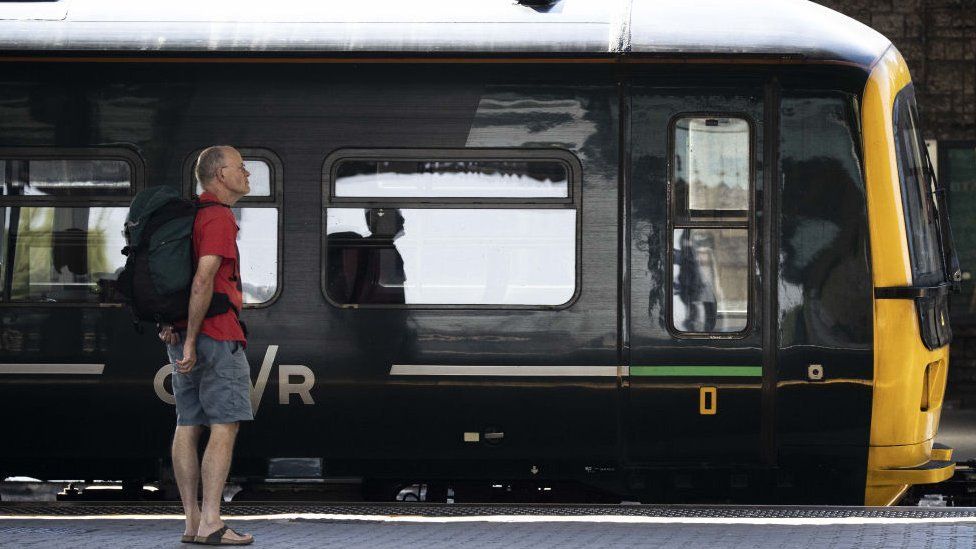The increase will also begin in March, rather than January, the government says.
 Image source, Getty Images
Image source, Getty ImagesRegulated train fares in England will rise below the rate of inflation next year to help people with the cost of living crisis, the government has said.
Before the Covid pandemic, fares were raised in January each year, based on the retail prices index (RPI) measure of inflation from the previous July.
The normal formula is RPI plus 1%. RPI in June was 11.8% – but it is not known what next year’s increase will be.
As well as being lower than RPI, the increase will be delayed until March.
The pledge was first reported by the Sunday Times.
Regulated fares cover about 45% of fares, including season tickets on most commuter journeys, some off-peak return tickets on long distances journeys and anytime tickets around major cities.
The June rate of RPI figure was the highest rate in more than 40 years.
In March, England and Wales saw the steepest increase in regulated train fares since January 2013, with a rise of 3.8%.
Rail fare increases are normally introduced on the first working day of every year but have been delayed until March every year since the Covid pandemic.
Fares for rail services in Northern Ireland are set by state-owned operator Translink, which does not use RPI. The Scottish government has not announced its plan for next year yet. Wales usually matches changes made in England.
A Department for Transport spokeswoman said: “The government is taking decisive action to reduce the impact inflation will have on rail fares during the cost of living crisis and will not be increasing fares as much as the July RPI figure.
“We are also again delaying the increase to March 2023, temporarily freezing fares for passengers to travel at a lower price for the entirety of January and February as we continue to take steps to help struggling households.”
The pandemic saw a steep drop in the number of train passengers, as more people worked from home, and numbers have remained well below pre-Covid levels.
Rail workers continue to strike over pay, with unions calling for pay increases to match the rising cost of living.
On Saturday around 6,500 train drivers who are members of the Aslef union walked out in a dispute over pay with nine rail companies.
More strikes are planned for the coming week, with members of the RMT and TSSA unions walking out on 18 and 20 August
Industrial action will also be taken on 19 August by London Underground and London bus drivers.